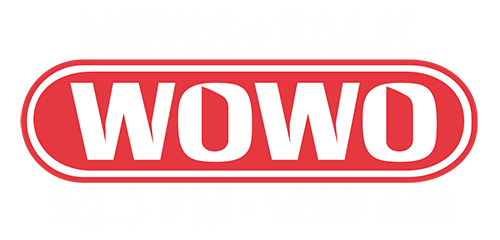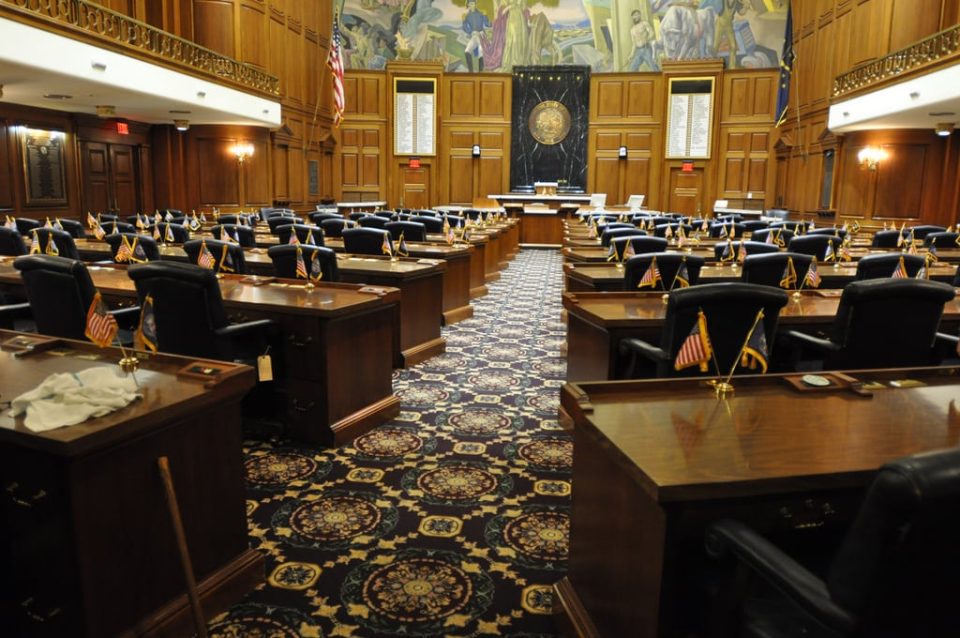INDIANAPOLIS (Inside Indiana Business) – The proposed House Republican budget advanced Monday to the full chamber, where much of the debate over Indiana’s next two-year spending plan will continue to center around school funding, public health and tax cuts.
The House Ways and Means Committee voted 14-5, along party lines, in favor of the draft budget.
K-12 education accounts for almost half the proposed two-year, $43.3 billion state budget. The GOP proposal would also appropriate $225 million for a highly-anticipated statewide public health program and speed up income tax cuts for Hoosier taxpayers.
But lawmakers are already getting pushback for provisions that seek to generously expand eligibility for the state’s “school choice” program — which allows families to receive vouchers to attend private schools. Further, some traditional public schools could stand to lose millions in operating revenues under a proposed cap on operations tax levies.
Democrats attempted to remedy some of those concerns with their own amendments on Monday but were unsuccessful getting the changes past members of the GOP-supermajority.
The House’s proposal is the first draft of a two-year state budget that must still be approved by the Senate and the governor.
A final version of the budget is expected by the end of April.
Democrats seek more funding for health, education
House Democrats offered their own ideas for the new state budget Monday. Many of their proposals built upon line items that are already laid out in the House Republican budget.
A wide-reaching amendment filed by Rep. Greg Porter, D-Indianapolis, included language to fully fund the governor’s Public Health Commission recommendations, for example. The GOP plan commits to only two-thirds of Gov. Eric Holcomb’s ask for the statewide public health program, and less than half what the blue-ribbon panel originally suggested.
“In too many areas in the state of Indiana, we fall short on being healthy as a state,” said Rep. Cherrish Pryor, D-Indianapolis.
Porter’s amendment also included tax relief for low-income Hoosier homeowners and statewide universal pre-K, as well as funding increases for public transit and mental health. It was rejected by the committee.
“Everything Rep. Porter does present — at least by our calculation — it’s tight. It’s close. Any little hiccup, and all of a sudden, it’s unstructured, it’s unbalanced,” said Rep. Jeff Thompson, R-Lizton, who chairs the House Ways and Means Committee. “We’ll have more spending than we have ongoing revenue.”
Democrats also sought significant changes to portions of the budget dealing with education.
Porter’s defeated amendment sought a 10% increase in “complexity” funding schools receive for low-income and at-risk students. Under the House GOP plan, that per pupil grant is set to go up just 4.4% in fiscal year 2024 and 1% in fiscal year 2025.
An alternate budget proposal authored by Rep. Ed DeLaney, D-Indianapolis, additionally sought to increase “sin taxes” on cigarette sales and sports betting as a means to spend more state dollars on public health and schools.
For K-12, specifically, DeLaney proposed a “dramatic” increase to complexity funding. The state currently spends about $691 million on the supplemental school grants. DeLaney said he wants that to increase to over a billion dollars.
“My belief is that we’re not going anywhere near far enough,” DeLaney said of the House GOP’s complexity funding plan. “I think we’re ignoring the poor, and the kids in the public schools. And the best way to do it is to say, ‘If you’ve got more poverty, we’re going to give you substantially more money.’”
DeLaney pointed out, too, that the Republican budget commitment to expand access to private school vouchers is a misappropriation of state funds.
“What we’re going to be doing is funding the tuition costs of students whose tuition cost is already being met, either by their parents or by some donation from their church, or whatever,” he continued. “I happen to think that dealing with our poor kids is far more important than bailing out some people who were already getting their tuition paid in the voucher schools.
DeLaney’s amendment was also defeated in committee along party lines.
Big questions about schools
Indiana taxpayers would more than double their spending on the state’s Choice Scholarship program under the House GOP budget.
The latest bill raises the income eligibility ceiling to 400% of the amount required for a student to qualify for the federal free or reduced price lunch program, equal to about $220,000. Currently, vouchers are limited to families that make less than 300% of the federal poverty level, meaning a family of four can make up to $154,000 annually.
After the expansion, the program would cost the state an estimated $500 million in fiscal year 2024, and another $600 million in the following fiscal year. The current state budget appropriates $240 million annually for the Choice Scholarships.
Thompson maintained Monday that private school tuition vouchers will “save the state money.”
“We’re educating 100,000 students (at voucher schools) for half the cost of those at traditional public schools,” Thompson said, pointing to debt service costs at public schools that “costs the state more money.”
“That’s a great deal for taxpayers, and also just honors a philosophy that I think a lot of us have, that parents should make what they believe is the best choice for their students,” he continued.
The House GOP budget would also change how local property taxes fund public school districts.
Every Hoosier school corporation would get the same amount of local property taxes for operations funding that is intended to cover non-classroom expenses, like electric bills or school bus maintenance. As currently drafted, the budget proposes $1,400 per student in 2024 and $1,500 per student in 2025.
The state would additionally provide a grant to any traditional public school that is below the per student funding benchmark. The move is expected to boost dollars to small and rural schools.
Charter schools would benefit from the new funding stream, too. Charter schools do not currently receive local property taxes, but would get $1,400 per student next year from state funds, according to the draft budget. A current state grant offers charter schools $1,250 per student each school year.
But the levy cap would mean cuts at some schools — especially larger ones, like those in Indianapolis. It’s not clear how much exactly individual school districts could lose, though. A fiscal analysis of the plan is still pending.

